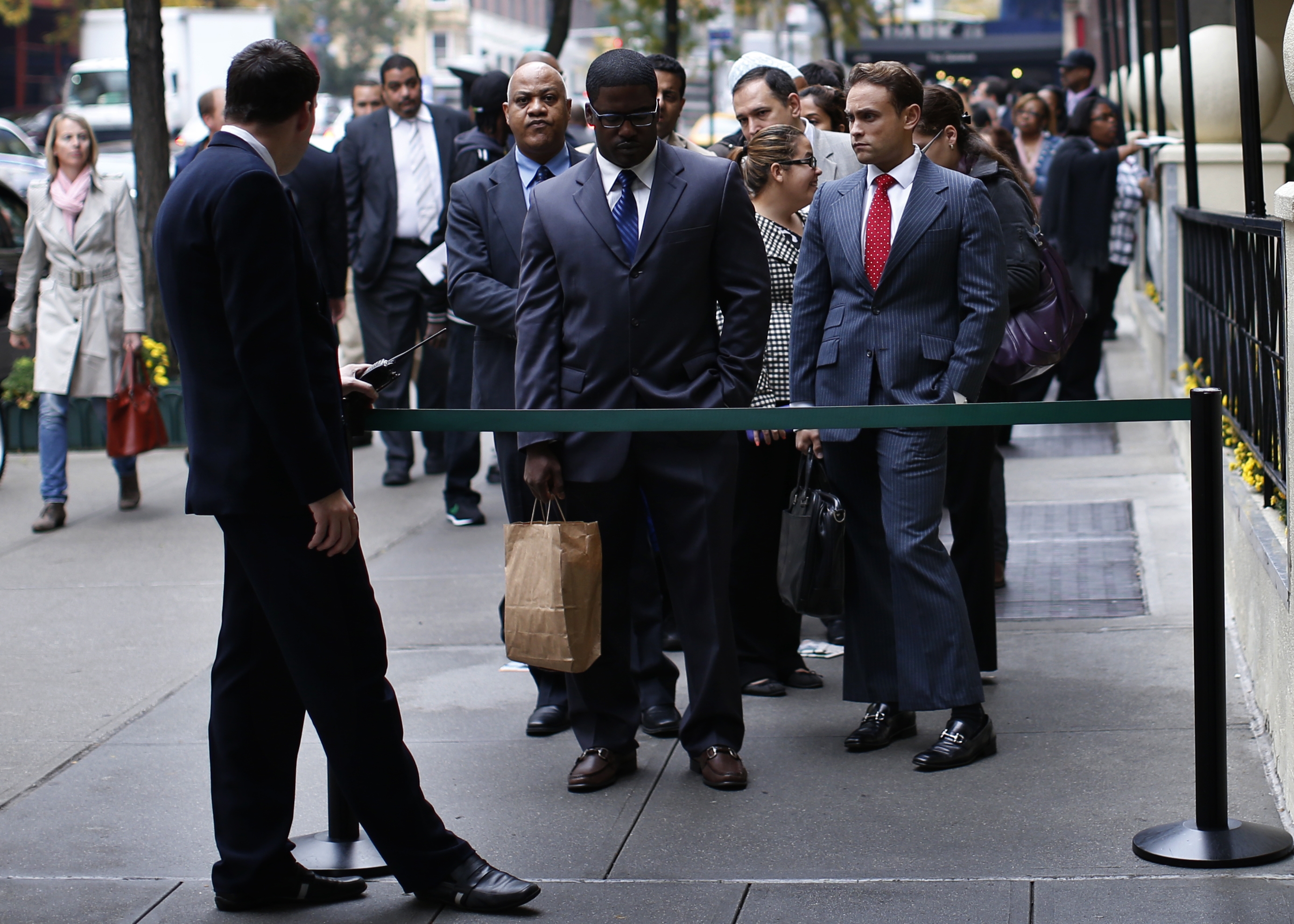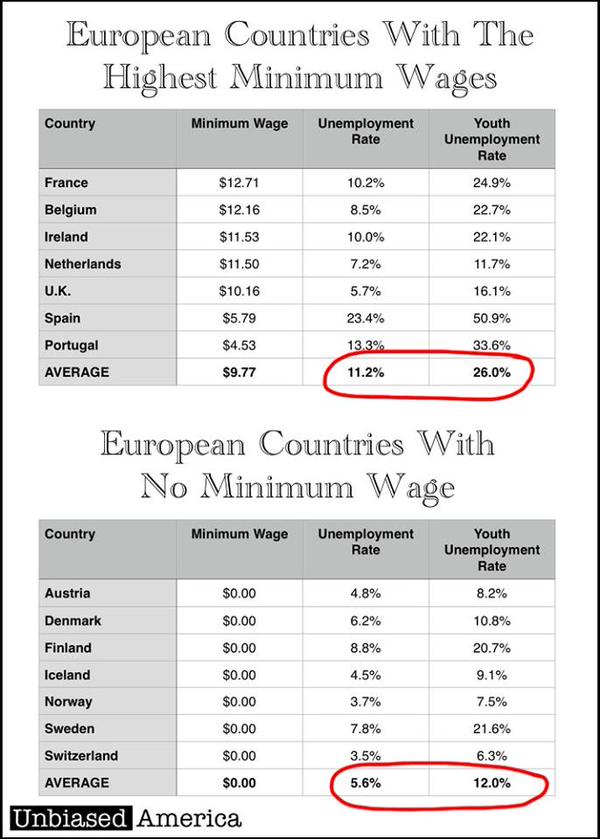
I’ve said it before and I’ll say it again – I do NOT doubt the nobility of the liberal. From food stamps to public schools – from Medicaid to minimum wage. The liberal is earnestly striving the raise the standard of living for the less fortunate.
They’re just wrong.
They are wrong due to two critical errors:
1. They don’t understand economics.
2. They assign the moral benefits of personal charity to voting for a larger state.
Take for instance the minimum wage.
Businesses run on margin – profit. Often that margin is razor thin. So, if wages equate to X% of your expenses and those wages are going to go up by 40% it only stands too reason that costs need to go up by 40% of X or some other expense is going to go down by 40% of X.
That ‘other’ expense? Wages. Either fewer wage earners or fewer hours worked.
And guess who is the first guy shafted? The least productive – often the least experienced, the youngest, the poorest and the most in need of a job.
The cold hard fact of the matter. If you want to increase the gap between my kids and kids born to a single, minority, uneducated, poor woman, you simply increase the minimum wage.
Period.
Not only do her kids not get the same jobs my kids get – they never benefit from the ‘On The Job Training’ that my kids get.
In the summer of 1995, more than half of teens age 16 to 19 worked in the summer; today, less than a third do. The drop has been especially steep for boys, who are now less likely than girls to work during the summer. Experts attribute the decline to a variety of forces: the disappearance of many entry-level jobs, the rising share of young people spending their summers in school or other educational activities and, at least recently, a rising minimum wage. (Employers may not see teen workers — especially those with less experience or fewer skills — as worth $10 or more per hour.)
Two of the three reasons are direct responses to increased cost of labor – automation and worth.
Young Americans from low-income families have been especially hard-hit by the decline in summer employment. According to data from the Current Population Survey, teenagers whose families make less than $20,000 per year are now less than half as likely to work as those from families who earn at least $100,000, and, unlike their wealthier peers, low-income teens have seen hardly any rebound in employment since the recession ended. (Black and Hispanic teens, too, have far lower employment rates than whites.)
…
Unfortunately, low-income teens are also the ones who most need summer jobs. They need the money, of course — a job that might provide pocket-money to a middle-class teen could be a key source of income for someone from a poorer family. But they also need the experience.
My son is soon going to hit the job market. And I’ll find him a job. I’ll either make one or or find one or buy one. I won’t do this so that he has money for more Pokemon cards or Xbox games. I’ll do this so that when he hits high school he’ll know how to:
- Show up on time
- Complete tasks
- Take coaching
- Earn money
- Work a shitty job in the hopes of one day not
The tragedy, the REAL tragedy, is that the minimum wage liberal is doing more damage to the population they hope to help than any capitalist ever could.








